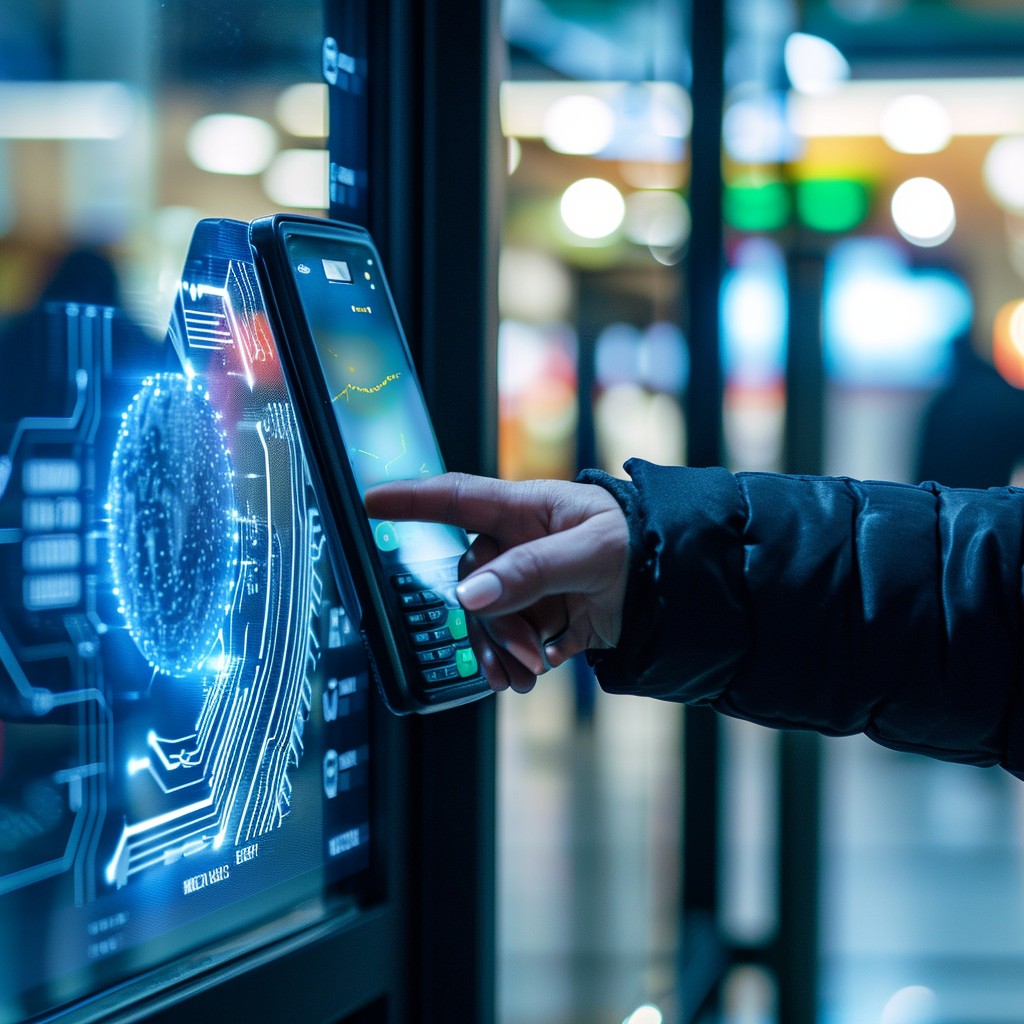Biometric payment solutions have gained significant traction in the retail industry, enhancing the shopping experience for consumers and streamlining checkout processes. Several partnerships and innovations have emerged, offering secure and convenient alternatives to traditional payment methods.
Keyo and Mashgin partner to enable palm biometrics
Keyo and Mashgin have joined forces to introduce a cutting-edge shopping experience that leverages biometric technology. This collaboration allows shoppers at AI self-checkout Mashgin stores to make payments using palm biometrics through the Keyo Wave system.
Keyo’s hand scanner eliminates needing smartphones, wallets, or credit cards, providing users with a contactless and swift checkout experience. According to reports, Keyo users at Mashgin stores save 15 to 30 percent of transaction time compared to other payment methods, with a median checkout time of under 10 seconds.
After registering with Keyo, shoppers simply hand over the compact palm reader to complete their payment. Within three months of its integration, the palm biometric payment method accounted for 10 percent of transactions at participating Mashgin stores, boasting an impressive retention rate exceeding 93 percent.
The combination of Mashgin and Keyo offers a cost-effective alternative to Amazon’s Just Walk Out system. Mashgin employs computer vision to identify purchased items at checkout, eliminating privacy concerns associated with extensive customer tracking.
Corsight AI enhances retail security and customer service
Corsight AI has introduced its facial intelligence software at the National Retail Federation’s annual trade show, focusing on improving customer care and deterring shoplifting. This innovative software identifies repeat customers and offers assistance when needed, optimizing the balance between customers and staff.
The system excels at identifying known shoplifters and those with no previous offenses, providing real-time alerts to security personnel. Corsight’s software seamlessly integrates with existing camera systems, demonstrating its reliability in adverse conditions such as poor video quality, limited camera angles, and outdoor environments.
In another development, Tulip has unveiled Tulip Pay, a payment integration solution powered by Stripe. This offering enables Tulip’s clients to close in-store, curbside, and online-to-in-store transactions using various payment methods. Tulip Pay utilizes Stripe Terminal, which simplifies logistics and interfaces for businesses.
Tulip Pay accepts over 100 payment methods and seamlessly integrates with Tulip’s Point of Sale (POS) systems, incorporating multi-factor authentication for enhanced security.
Telpo and Tencent introduce biometric palm payment systems
Telpo, a biometric terminal provider, has introduced the Telpo K8, a self-service terminal with palm payment integration. This innovation incorporates liveness detection and employs an RGB and IR dual-lens camera. With its contactless payment capabilities, the Telpo P105 Palm Verification Terminal offers additional convenience to shoppers.
Meanwhile, in China, Tencent has introduced its palm scanning payment service, Weixin Palm Payment, in collaboration with Weixin Pay and WeChat. The technology has been deployed in 1,500 7-Eleven stores in Guangdong, and Supermonkey gym chain members can check in and out using this feature.
The biometric payments market soars, but privacy concerns loom
According to Goode Intelligence, the biometric payments market is projected to reach a staggering $5.8 trillion by 2026. However, this rapid proliferation of biometric scanning in retail has raised privacy concerns among some advocates.
Edward Santow, an industry professor of responsible technology at the University of Technology Sydney, emphasizes the importance of safeguarding personal information in the face of widespread biometric adoption. He warns that large-scale data collection creates lucrative opportunities for cybercriminals, emphasizing the need for stringent security measures.
As the retail landscape continues to evolve with biometric innovations, businesses and consumers alike must balance the convenience of these technologies and the critical need for data protection.




